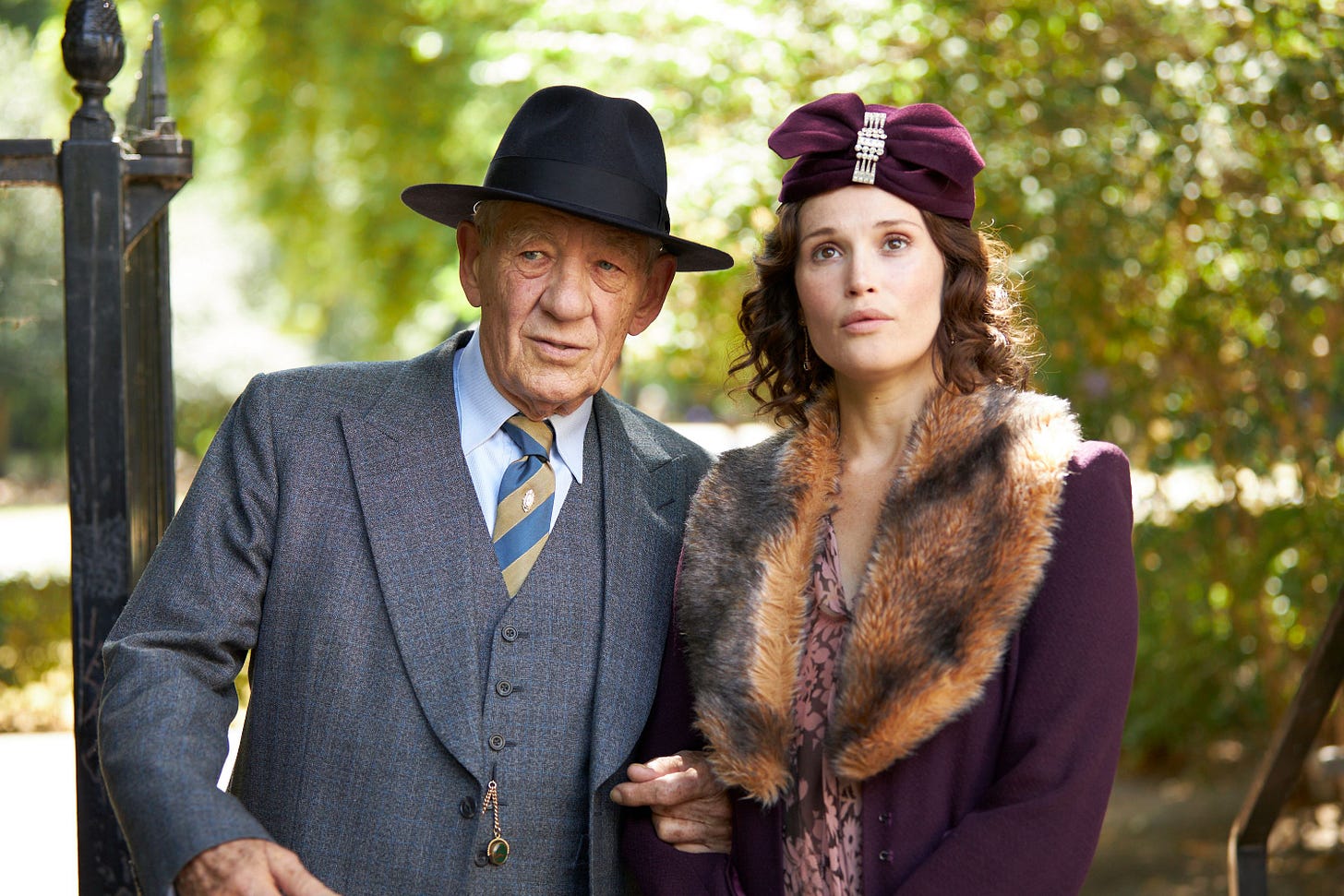The Critic: Review
In Anand Tucker’s “The Critic,” adapted from Anthony Quinn’s novel Curtain Call, the prelude to World War II serves as the backdrop for a shadowy drama about ambition, scandal, and moral compromise. Set in the glittering but treacherous world of London’s theater scene, the film immerses us in the lives of those who wield power not through politics or wealth, but through the potency of words.
At the heart of the tale is Jimmy Erskine (Ian McKellen), a sharp-tongued drama critic whose scathing reviews can shape the destinies of actors and playwrights alike. His reputation as a feared, flamboyant figure in the theater world makes him both revered and despised. On the other side of this game is Nina Land (Gemma Arterton), a young actress desperate to climb the ranks of stardom. Knowing that Erskine’s approval could make or break her career, Nina finds herself entangled in a precarious relationship with the critic. However, when whispers about Erskine's hidden life and Nina's romantic missteps threaten their carefully constructed facades, both are pulled into a web of manipulation and desperate choices.
What might have been an exploration of the dangerous allure of critical influence and its consequences instead takes a darker turn, delving more into the salacious underbelly of its characters’ lives. Screenwriter Patrick Marber’s adaptation leans into the morally murky aspects of the story, focusing on secrets and betrayals rather than the broader social critique that the premise hints at. This shift in focus slows the film's pacing, as its more tawdry elements take center stage.
Still, the performances are magnetic. McKellen brings Jimmy to life with an unapologetic bravado, balancing the critic’s charm with an undercurrent of menace. His venomous quips are delivered with such effortless malice that they leave lasting scars on those in his path. Arterton’s Nina is no less compelling, portraying a woman caught between ambition and survival. Together, they create a fascinating dynamic—one built on mutual dependence and simmering tension.
While The Critic succeeds in creating an atmospheric tale of intrigue, it struggles to deliver a narrative that feels fully realized. The film’s potential for a more incisive commentary on the power of critics is overshadowed by its preference for more sensational, but ultimately shallow, drama. In the end, it is the performances that stand out, leaving an impression even as the story lingers in darker, less satisfying places.




